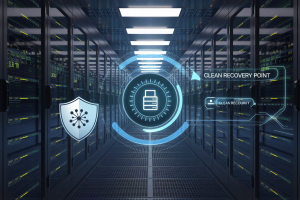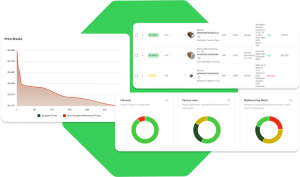MIT professor shares his take on the CDO | #MITIQ
![]() About 25 years ago, a study was conducted at MIT to assess the impact of the education provided by the university on the overall academic performance of students. The results set off a series of probes into the school’s conduct. The researchers found that the average IQ score of graduating seniors was lower by a small but statistically significant number than that of the entering freshmen they had tested four years earlier.
About 25 years ago, a study was conducted at MIT to assess the impact of the education provided by the university on the overall academic performance of students. The results set off a series of probes into the school’s conduct. The researchers found that the average IQ score of graduating seniors was lower by a small but statistically significant number than that of the entering freshmen they had tested four years earlier.
After the investigation ran its course, however, it became apparent that the situation was not at all as it appeared. Management, it turned out, acted on the assumption that the study examined the same students on both occasions, when in fact, the seniors and the sophomores were two different groups. To Stuart Madnick, a Professor of Information Technology and Engineering Systems at the MIT Sloan School of Management, the survey serves as a prime example of how important it is to always take a measured and careful approach to processing data. This holds especially true for the organizations pursuing strategically important analytics initiatives today.
“That ability to understand the data we’re using is so important, and we see time and time again where we misunderstand our data and that leads to amusing stories like that, or sometimes serious issues occurring,” Madnick told Wikibon co-founder Dave Vellante and co-host Paul Gillin in his latest appearance on SiliconANGLE’s theCUBE at the recently concluded MITCDOIQ Symposium.
Rushing to automation without the rush to quality
As was the case with the student study, many of the inconsistencies that spring up in the course of enterprise analytics projects these days are not the result of errors in the data but rather an incorrect view of the statistical facts at hand, Madnick highlighted. That remains a burning challenge even as analytic technologies such as Hadoop take on increasingly central roles in decision making across a wide range of sectors, an obstacle he blames on what he perceives as the industry’s somewhat rushed approach to the Big Data phenomenon.
“Sometimes innovations go through a gestation period that takes a while to sort out, but the mere fact there are these bumps in the road doesn’t mean you should go in without being open to realizing there are bumps in the road and doing everything possible to realize,” Madnick said. “That’s where things have been left down, the rush to getting automated without the rush to quality.”
Addressing the issue of incorrect data interoperation at the organizational level requires change from the top, which is where the chief data officer (CDO) is supposed to come in. The emerging role is touted by its proponents, many of whom hail from regulated industries such as healthcare and financial services, as the answer to the information governance woes of the modern enterprise. Chief among those is security, and specifically the majority of breaches that originate internally.
“Let’s go back to two of the widely-discussed cyber incidents: WikiLeaks on one hand and Snowden with the NSA on the other hand. Would a better firewall have stopped that? Would a better cryptographic code would have stopped that? The answer is no, and a lot to do with the organizational structural and training,” Madnick explained. “That’s not part of the CIO’s role normally, it’s not part of the CSO’s role normally. If you think about what the CDO’s role should be, that should be dead center.”
See Madnick’s entire segment below:
A message from John Furrier, co-founder of SiliconANGLE:
Your vote of support is important to us and it helps us keep the content FREE.
One click below supports our mission to provide free, deep, and relevant content.
Join our community on YouTube
Join the community that includes more than 15,000 #CubeAlumni experts, including Amazon.com CEO Andy Jassy, Dell Technologies founder and CEO Michael Dell, Intel CEO Pat Gelsinger, and many more luminaries and experts.
THANK YOU









